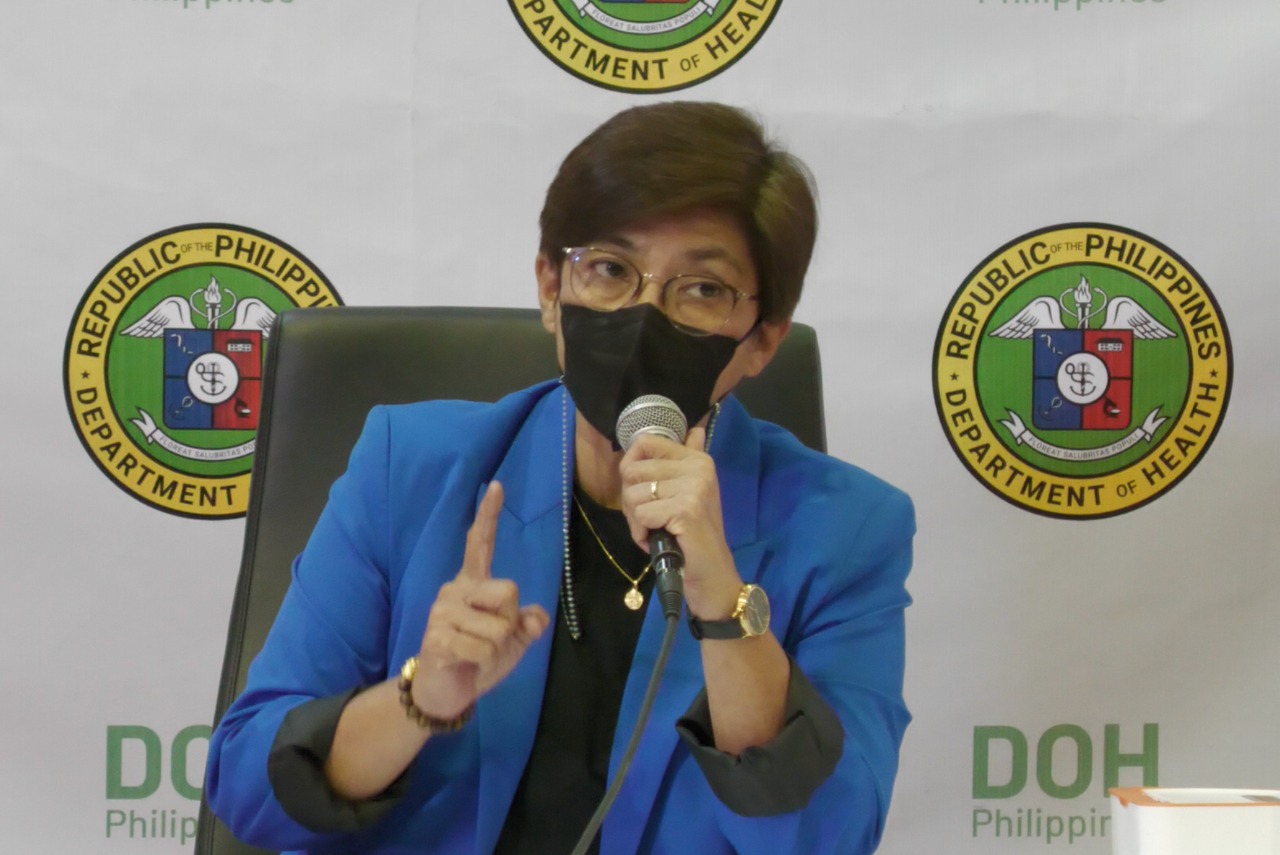
Health Undersecretary Maria Rosario Vergeire during the press conference on Nov. 4, 2022 at DOH Central Office. INQUIRER.net/Noy Morcoso
Fourteen cases of BQ.1, a new subvariant of the COVID-19 Omicron variant, have been detected in the country, according to the latest genome sequencing conducted by the Philippine Genome Center, the Research Institute for Tropical Medicine and San Lazaro Hospital.
Furthermore, Health Undersecretary Maria Rosario Vergeire said the new strain is “more transmissible and highly immune evasive,” compared with the earlier Omicron subvariants BA.4, which was detected in the country in May; BA.5, which was traced here in July; BA.2.75, which was found in August; and Omicron recombinant XBB, which was seen in October.
That month, the World Health Organization (WHO) disclosed the emergence of BQ.1 as a variant of concern and subsequently reported its spread in 29 countries.
But the European Centre for Disease Prevention and Control placed BQ.1 under the lighter category of variant of interest, even as it estimated that by year-end, more than 50 percent of COVID-19 infections would be due to BQ.1 and yet another subvariant, BQ.1.1.
‘Focus’
According to the Department of Health (DOH), 13 of the BQ.1 cases in the country were local transmissions which were traced in Metro Manila and in the regions of the Cordillera, Ilocos, Calabarzon and Central Luzon.
The DOH has yet to confirm if the remaining 14th case was from a foreign traveler or a returning overseas Filipino worker.
It has also yet to disclose when the new infections were detected, although the 6,070 samples sequenced so far covered the period of Oct. 28 to Nov. 18.
Nevertheless, the new coronavirus strains “should not be the focus of citizens,” said Vergeire, officer in charge of the DOH.
Instead, the focus should be “[getting] ourselves protected” and continuing to adhere to minimum public health standards, she said.
“That is also the reason we are not so much … dwelling on informing and disseminating this kind of information, though in the spirit of transparency also, we posted [it] on our website,” she added.
‘Life cycle’
Vergeire explained that the emergence of new variants is “part of the life cycle of the virus,” adding that this would continue as long as there are “hosts”—people who remain unvaccinated.
The WHO, however, noted that BQ.1 is showing “a significant growth advantage over other circulating Omicron sublineages in many settings, including Europe and the United States.”
Vaccine protection “may be reduced,” warned the organization. Yet it also made the assurance that “no major impact on protection against severe disease is foreseen.”
—Reports from KATHLEEN DE VILLA and INQUIRER RESEARCH
RELATED STORY:
PH detects 79 new COVID-19 Omicron sub-variant infections